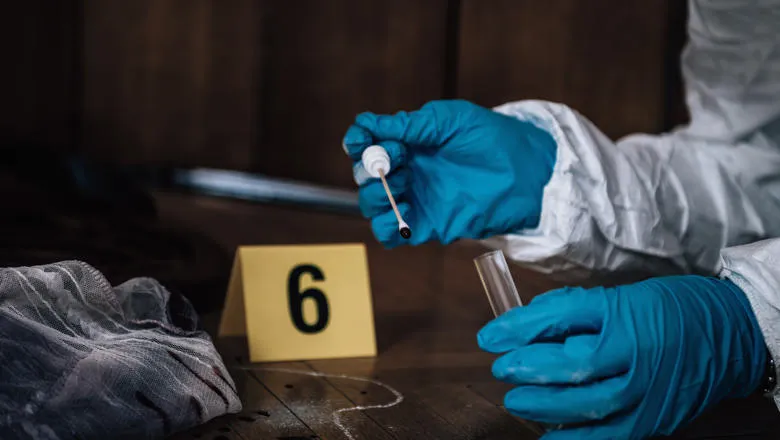King's has been awarded a share of a €4.7 million research grant to support a groundbreaking European project aimed at transforming how DNA is used in forensic investigations.

The goal of the Forensic Methylation Analysis Toolsets (ForMAT) project is to develop a new generation of forensic tools based on DNA methylation, a natural chemical process that affects how DNA behaves as we age. The project brings together 11 institutions across Europe, including universities, forensic laboratories and police authorities, to help solve crimes, identify disaster victims and assess the age of asylum seekers.
This funding award by the EU will enable the development of advanced forensic tools that provide novel solutions to aid in the resolution of complex legal issues, both in the criminal and civil arena."
Dr David Ballard, Senior Lecturer in Forensic Genomics, King's Forensics
Dr Ballard continued: "We look forward to working with our European partners over the next 4 years to enhance our ability to determine the chronological age of individuals across a range of applications."
Unlike traditional DNA profiling, which focuses solely on identity, DNA methylation can reveal additional information - such as a person's age and lifestyle. It can even describe where a sample originates from, including an individual's skin, blood or saliva. These insights have the potential to significantly expand the usefulness of DNA evidence in forensic science.
As part of the project, researchers will develop four new DNA methylation 'kits' that will improve forensic science across a range of areas. This includes aiding investigations in unsolved criminal cases - so called 'open cases' - helping to identify human remains in disaster or missing persons cases, and assessing the legal age of asylum claimants without using X-rays.
King's has been awarded €650,000 for two strands of work to support this. The first strand, led by Dr David Ballard, will involve designing technical tools that can read methylation patterns in a way suitable for the chosen application - for example, the forensic tools need to be able to work with the sort of poor-quality samples found at crime scenes.
A second strand of work, led by Professor Denise Syndercombe-Court, will involve assessing and finding solutions to ethical and legal risks posed by these technologies.
"In addition to the essential scientific work that will be required to realise these innovative tools to benefit criminal justice, we understand that there will be significant legal and ethical impacts in using these technologies.
Professor Denise Syndercombe-Court, Professor of Forensic Genetics, King's Forensics
Professor Syndercombe-Court added: "An important part of the research will be to build in associated safeguards that protect privacy and avoid discriminatory profiling to ensure public trust in their use."






